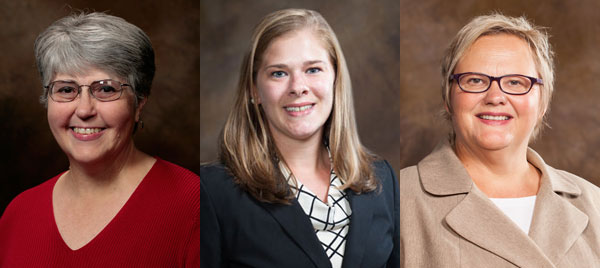Outreach efforts of the University of Arkansas in Fayetteville to assist families in Arkansas who face challenges associated with autism are being guided by research from the University of Arkansas for Medical Sciences on the prevalence of the neurological disorder.
UAMS, which is based in Little Rock, last week announced results of its Arkansas Autism and Developmental Disabilities Monitoring program that show one in 65 Arkansas children has been identified as having an autism spectrum disorder.
The new Arkansas numbers are the first since a 2002 count and are part of national data released March 27 by the Centers for Disease Control and Prevention that was gathered from the national Autism and Developmental Disabilities Monitoring network. The 2002 count estimated that one in 145 Arkansas children were identified with autism.
“In Arkansas, we use this data to guide our outreach,” said Peggy Schaefer Whitby, an assistant professor of special education. She directs graduate programs in autism in the College of Education and Health Professions at the U of A in Fayetteville. “For example, the 2010 statewide surveillance report indicated a decrease in the number of children from minority communities diagnosed with an autism spectrum disorder, specifically African American children. This prompted systematic outreach to these communities, the development of a research team to determine the variables affecting access to services for these children, and monitoring of the ADDM data to determine if we are reaching families from minority, rural and low socioeconomic communities.”
Whitby serves as an Arkansas Act Early Ambassador for a CDC program called “Learn the Signs.” She works with a statewide team made up of pediatricians, other autism experts and families with children on the spectrum that develops systems for early screening of neurodevelopmental disabilities. The team also works to educate parents, health-care professionals and educators in Arkansas to recognize and act on early warning signs of autism and other developmental disabilities.
Whitby received a doctorate in exceptional education from the University of Central Florida and is a board-certified behavior analyst. She previously directed the University of Nevada at Las Vegas Center for Autism Spectrum Disorders and worked as an applied behavior analyst in schools.
UAMS reported that the new state estimate is based on information collected from health and special education records of children who were 8 years old and living in Arkansas in 2010. The Arkansas monitoring program, in collaboration with the Arkansas Department of Health, is one of only two sites in the ADDM Network to track autism in an entire state and the only site that continues to do so.
The AR ADDM data found that boys are four times more likely to be identified with autism than girls. Also, white children are more likely to be identified with autism than black or Hispanic children, and 23 percent of children identified with autism had not yet been classified as having it by a community health care or education provider.
Some ways the state is addressing the increased incidences of autism include graduate level autism curriculum offered by the College of Education and Health Professions in Fayetteville for students seeking a master’s degree in special education and certification in behavioral analysis. Whitby and Elizabeth Lorah, who joined the faculty last fall and is also a board-certified behavior analyst, teach courses in a new graduate certificate in applied behavior analysis. The college also offers a graduate certificate in autism spectrum disorders. Barbara Gartin, University Professor special education, teaches courses for that certificate as well as in the college’s Master of Education degree in special education with Whitby and Lorah.
More information about the UAMS study is available from Liz Caldwell, director of news and communications, liz@uams.edu.
Topics
Contacts
Heidi Wells, director of communications
College of Education and Health Professions
479-575-3138,
